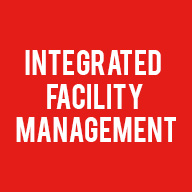5 ways to manage digital transformation

Digital & Technology
318 week ago — 5 min read
Summary: Digital transformation (DX) is the application and integration of digital technology to all aspects of your business. It is the biggest change that all organisations will face in the coming years. But are you prepared to adopt the change? Restructuring and reorganising a company’s traditional processes is not an easy task and many enterprises lack the right skills and technological know-how to manage the change that digital transformation will bring. GlobalLinker member Aval Sethi explains the need to adopt digital transformation and a few steps you can follow to manage it.
A survey conducted on a community of procurement professionals recently deduced that only 5% believed digital transformation is not knocking on the doorsteps of their business. The rest 95% were solemn in the belief that digital transformation would change the landscape in the next five years. Interestingly, only 66% of these participants were found strategising to cope with the future, while the rest are firm in their faith that they can brave the changes with their present capabilities.
To make matters more difficult, the groups who have overseen the survey process, were of the opinion that the numbers depicting brands with strategies are actually fudged, and that an even lesser percentage of teams actually have strategies at hand. In their opinion, direct assessment of these firms’ capabilities to cope with the digitalisation has come up with poor results; they just do not seem prepared.
Procurement experts believe that in order to embrace the change, enterprises would have to undergo changes from the digital aspect. This may alter how these businesses conduct themselves, but in order to sustain a future-compatible business strategy and also to gather the resources for the same, these brands have to overcome the lack of vision.
In order to cope with the future, here are five ways businesses can learn, to shape their business in the years to come:
1. Even if the business is not ready for the digital age, the business must be first aware of the leaps and bounds in the technology that are occurring in its industry. Companies that do not usually embrace technology as a means of delivering productivity must embrace the digital advancements in their respective fields or perish.
2. As reluctant as they might be, businesses have to cultivate skill. There is no substitute for skill, and the sophistication of technology demands skills that can match steps with the technological advancements. For this, businesses have to train their human resources to leave behind the old ways and move forward and undergo training in new methods.
3. Businesses have to look at the bigger picture and upgrade the skill sets of the entire organisation rather than looking at the individual skill sets of their departmental constituents. The focus has to be on creating a synchronised team of resources as opposed to expecting a single individual to embrace the bulk of the scope of technological advancements.
4. Businesses have to be more flexible towards their resources. In order to retain their employees and make the most of their investment in inculcating skills in them, they have to be patient with the training process. The tendency to dispense off underperformers has to change, and businesses have to be more loyal towards their own employee assets.
5. Businesses need to be transparent to their teams with respect to the business’ vision of the future. Senior employees will have to practise leadership in order to guide their resources in the direction of the change.
Digital transformation can be daunting, but it eases the pangs of an unknown business environment if the employees have someone to keep them on the right track.
How is digital transformation working for you? Share your thoughts in the comments section below.
To explore business opportunities, link with me by clicking on the 'Invite' button on my eBiz Card.
Disclaimer: The views and opinions expressed in this article are those of the author and do not necessarily reflect the views, official policy or position of GlobalLinker.
Posted by
Aval SethiWe support Procurement Transformation in organizations. We offer ‘Consulting & Advisory’ to streamline your procurement processes & identify gaps. We provide a...
View Aval 's profile
Other articles written by Aval Sethi
8 Steps to Implement Procurement Transformation
315 week ago
Most read this week
Trending












Comments
Share this content
Please login or Register to join the discussion